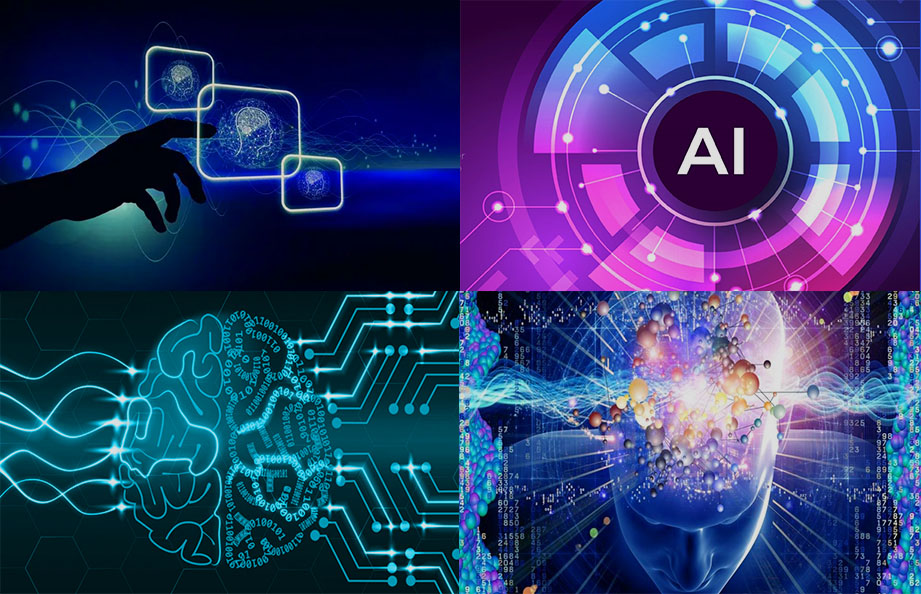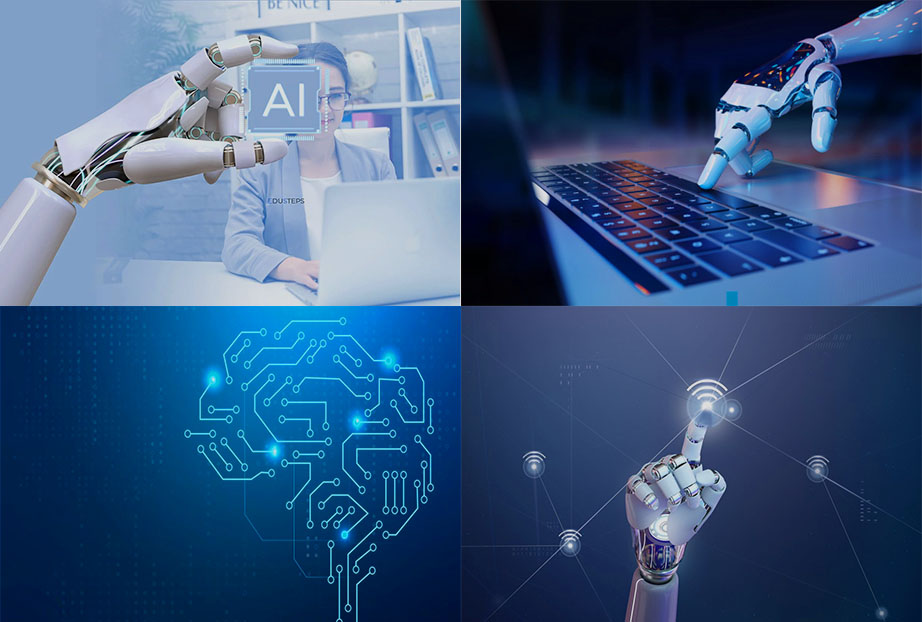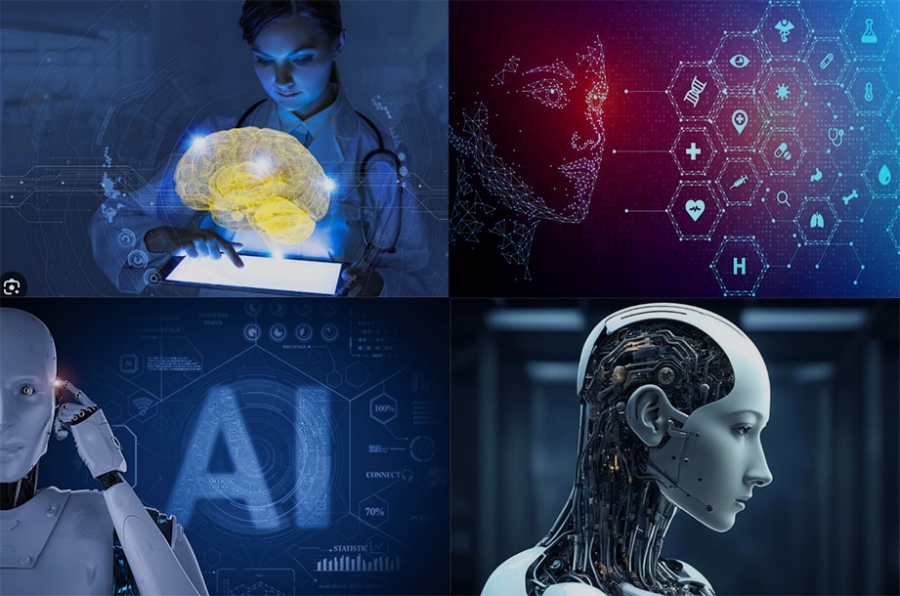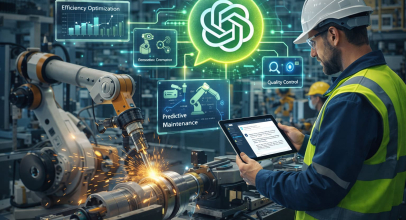- What Is Artificial Intelligence in Online Learning?
- How AI Personalizes Learning Experiences
- Enhancing Accessibility in Online Education
- The Role of Virtual Tutors and Chatbots
- AI in Assessments and Feedback
- Future Trends: AI and the Evolution of Online Education
- Challenges and Ethical Considerations
Online learning has become an integral part of modern education, offering unprecedented flexibility and accessibility. In this digital revolution, artificial intelligence (AI) plays a pivotal role in transforming how students learn and teachers teach.
AI enables educational institutions and platforms to deliver highly personalized, interactive, and effective learning experiences.
What Is Artificial Intelligence in Online Learning?
Artificial intelligence refers to the use of advanced algorithms and machine learning techniques to simulate human intelligence. In online education, AI is applied to automate tasks, personalize learning experiences, and provide instant feedback. It is not merely about automating repetitive tasks; it’s about creating a smart system that can understand individual student needs, analyze large sets of data, and make informed decisions.
Key Applications of AI in Online Learning:
- Adaptive learning platforms that tailor content to individual student needs
- Virtual tutors and chatbots for real-time assistance
- Automated grading systems for quicker feedback
- Data analytics to monitor student progress
AI’s capabilities allow platforms to become more than just content providers. They transform into active participants in the learning process, supporting both students and educators. For example, platforms like Khan Academy utilize AI to recommend courses based on student interests and performance.
Artificial intelligence makes online learning smarter, faster, and more accessible.
How AI Personalizes Learning Experiences
One of AI's most significant contributions is the ability to customize learning paths. Traditional classroom settings often struggle to address individual learning styles, but AI changes the game. By leveraging machine learning algorithms, AI identifies patterns in student performance and adapts accordingly, providing a tailored experience for every learner.

Benefits of Personalized Learning Through AI:
- Tracks student performance and identifies strengths and weaknesses
- Adjusts lesson difficulty based on the learner’s pace
- Offers targeted recommendations for additional resources
- Improves retention by focusing on areas where students need the most help
Imagine a student struggling with a math concept. AI-powered tools can detect this challenge through quiz performance and immediately recommend simplified lessons or alternative teaching approaches. This level of personalization ensures no student is left behind. Furthermore, such systems foster a sense of independence and confidence among learners.
Enhancing Accessibility in Online Education
AI breaks down barriers to education by making learning accessible to all, regardless of location or ability. This has been particularly evident during the global shift to online learning, where AI tools have played a vital role in ensuring inclusivity.
Ways AI Increases Accessibility:
- Language Translation
AI translates course materials into multiple languages for global learners. - Assistive Technology
Tools like speech-to-text and text-to-speech help students with disabilities. - Flexible Learning Schedules
AI-based platforms allow students to learn at their convenience.
By enabling access to educational resources in rural areas or underserved communities, AI democratizes education. For instance, platforms such as Google Translate and Microsoft’s Immersive Reader make learning content accessible to non-native speakers and visually impaired students. This inclusivity allows students from diverse backgrounds to access quality education without geographical or physical limitations.
AI opens doors to education for everyone, everywhere.
The Role of Virtual Tutors and Chatbots
AI-driven virtual tutors and chatbots are revolutionizing student support in online learning. These tools offer instant assistance, reducing the need for human intervention. Virtual tutors provide step-by-step guidance on subjects ranging from basic algebra to complex coding languages, while chatbots handle administrative queries and technical support.
Benefits of Virtual Tutors:
- Provide 24/7 availability for answering questions
- Offer step-by-step guidance on complex topics
- Simulate human-like interactions to create engaging learning experiences
Students no longer have to wait for instructors’ responses; AI tools like ChatGPT and ScribeSense are there to assist in real-time. Moreover, the conversational abilities of these AI tutors make the learning process more engaging and interactive. For teachers, these tools help reduce the administrative burden, allowing them to focus on curriculum development and student engagement.

AI in Assessments and Feedback
Another critical role of AI in online learning is automating assessments. Manual grading can be time-consuming and prone to errors, but AI solves this problem efficiently. Beyond grading, AI-powered analytics offer deeper insights into student performance, helping educators make informed decisions.
Advantages of AI in Assessments:
- Automates grading for multiple-choice and essay questions
- Analyzes student responses to provide detailed feedback
- Identifies patterns in errors to address learning gaps
AI ensures timely feedback, which is crucial for student growth. For instance, platforms like Gradescope streamline the grading process for teachers while providing students with immediate insights into their performance. AI also eliminates unconscious bias in grading, ensuring fairness and objectivity.
Future Trends: AI and the Evolution of Online Education
The future of AI in online learning is bright, with innovations that promise to make education even more effective and inclusive. Emerging technologies are pushing the boundaries of what’s possible, combining AI with other tools like virtual reality (VR) and augmented reality (AR) to create immersive educational experiences.
Emerging AI Trends in Online Education:
- Immersive Learning
Combining AI with VR and AR for interactive experiences - Predictive Analytics
Using AI to forecast student performance and recommend interventions - Gamification
Integrating AI to create engaging, game-like learning environments - Lifelong Learning
AI tools that adapt to learners’ evolving needs over their lifetime
AI’s ability to predict trends in student behavior can help educators intervene early and provide the necessary support. For example, if AI detects a student struggling in a subject, it can notify the teacher and suggest additional resources or tutoring. As these systems become more advanced, the boundaries between traditional and online education will blur, offering hybrid models that maximize efficiency and engagement.
The integration of AI into online education is not just a trend—it’s the future.
Challenges and Ethical Considerations
Despite its benefits, the use of AI in online learning comes with challenges. Addressing these issues is crucial for sustainable growth. For example, AI systems rely on data, raising concerns about student privacy and data security. Additionally, biases in AI algorithms can lead to unequal treatment of students.
Challenges of AI in Education:
- Privacy concerns related to data collection
- Potential biases in AI algorithms
- The digital divide limiting access to AI-powered tools
To overcome these challenges, stakeholders must adopt ethical frameworks for AI development and ensure transparency in its applications. Governments and educational institutions must work collaboratively to bridge the digital divide by investing in infrastructure and affordable technologies.
Artificial intelligence has revolutionized online education by making learning more personalized, accessible, and efficient. From adaptive platforms to virtual tutors, AI empowers both students and teachers to achieve more. However, as we embrace this technology, addressing challenges like privacy and bias will be essential for its continued success.
AI in online education is more than a tool—it’s a transformative force driving the future of learning.
By leveraging AI’s potential, we can create an inclusive and innovative learning ecosystem that benefits everyone. Whether you’re a student seeking flexible learning or an educator looking to enhance teaching strategies, AI is here to make online education smarter and more effective.







